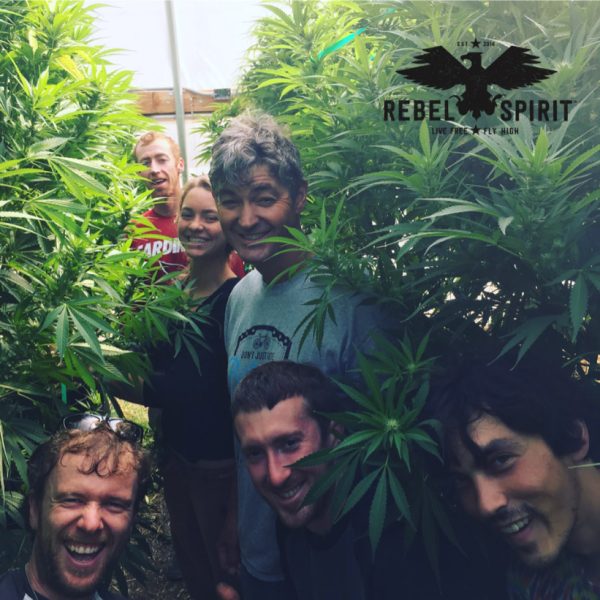Cannabis is a complicated business, subject to the same economic principles as any other industry, yet
distinguished by the unique qualities of the product. For those who grow it with care and intention, the plant
will always be more than just a commodity. Most American farmers are in the business of mass production;
with cash crops like corn, tobacco, and soybeans there is rarely much thought beyond maximizing yield. But
for top tier cannabis farmers, cultivation involves a more individualized consciousness. Needs vary from
plant to plant, and there are endless variables to tinker with. Cultivators train themselves to look for the
subtlest warning signs of nutrient deficiencies or the onset of mold. They must take the time to connect to
their crop.

For Rebel Spirit co-founder Chris Bechler, the company’s go-to guy for all matters botanical, reverence for
cannabis is intrinsic to the cultivation process. The dedication required is obvious to anyone who’s heard
him describe different Rebel Spirit strains—when it comes to his cannabis babies, Bechler wears his heart
on his sleeve. The specificity of his knowledge is almost overwhelming, but his passion for cultivation down
to its most intricate details is infectious. He defies anyone in the industry to show him a better strain of Jack
Herrer than the Rebel Spirit-grown phenotype, and he speaks of Oregon Growers Cup two-time winner
Gooble Gobble with the satisfaction of a father at his child’s graduation. The light in his eyes when he
passes you a Rebel Spirit preroll makes you long for a world where everything you bought came from
someone who put this much of themselves in the final product.
Keeping things transactional can be just as difficult for those on the consumer side of things. I’ve known
smokers to accept a joint when it's passed to them like they’re taking a sacrament. The billowing exhale of
smoke can make a hallowed place of any smoking circle. Just the act of rolling is a rite in and of itself. I’ve
known cannabis aficionados with palettes as fine as a sommelier whose joints are true masterpieces.
They’ll carefully select nuggets from the jar and work the grinder for just the right consistency. Then they
gently layer the finely ground flower into its bed of rolling paper, and after one deft twist of the fingers you
are presented with a smokeable work of art.
But you don’t have to be a pro to appreciate the extent to which cannabis is unlike any other product.
Passing a joint around is a ritual of hospitality, a way to build bridges, and a single joint can mean
something different to everyone who comes into contact with it. Be it medicine for the afflicted, a sweet
release after a long day of work, or a new way of seeing a sticky situation—whatever the connection
between person and plant, the relationship is bound to be an intimate one.
As the cannabis industry develops, producers and consumers alike must guard against the encroachment
of a mass production mentality while we care for an interspecies relationship that is as ancient as it is
sacred. Industrialization tends to break production into parts. The efficiency of the assembly line comes with
an ever-growing distance between people and product. By the time most items reach a consumer, they
have no sense of how it got there or whose hands have been on it. Cannabis can be a welcome corrective
to this modern predicament. For thousands of years, it has offered entry into a network of conscious
interconnection. Today, Rebel Spirit’s high-quality cannabis continues that tradition by bringing growers and
consumers into community with one another and feeding the cycles that make life worth living.
Communion with the plant is always at the forefront of Rebel Spirit—our architecture is built around the
networks of care that cannabis needs. From living soil to living wages, every dollar spent at Rebel Spirit
generates a symbiotic ecosystem between plants and people. The process begins with our stewardship of
the land—our beautiful patch of tree-lined meadow in the heart of the Willamette Valley. We keep our
biodiverse soil rich in nutrients so that nourishment is passed along to our plants, who offer it in turn to our
customers. By supporting our product, consumers support our farm family in doing the work we love.
By Holly Devon, Staff Writer
